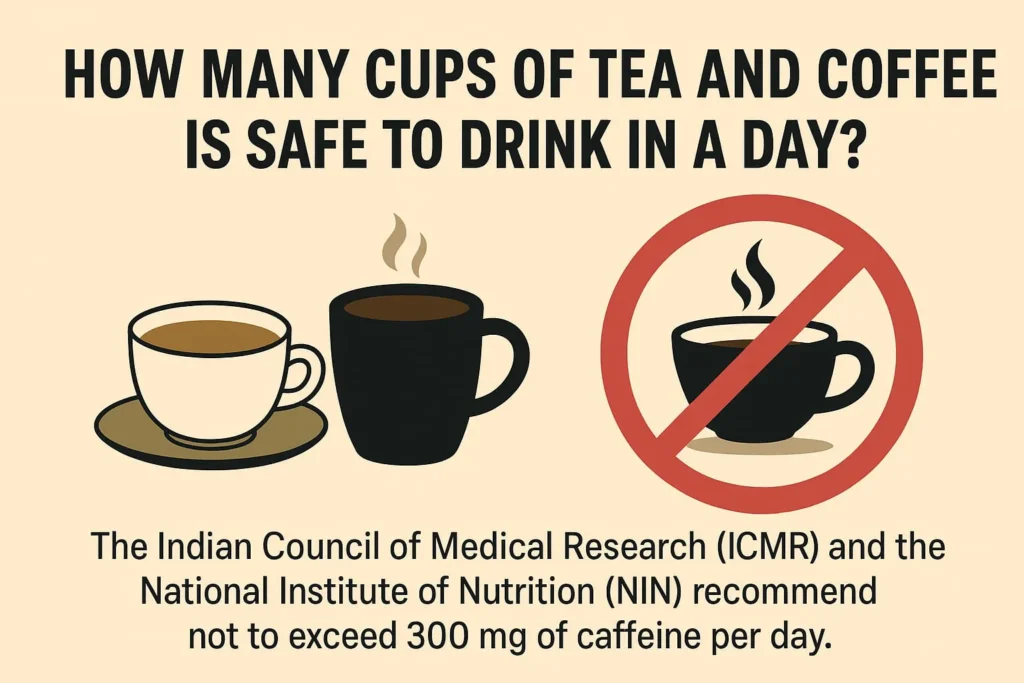For most Indians, tea and coffee are more than just beverages — they are part of our lifestyle. From the first “bed tea” in the morning to the evening coffee that helps us relax after a tiring day, these drinks have become an inseparable part of our daily routine.
But have you ever wondered how many cups of tea or coffee per day are actually healthy? Let’s see what the Indian Council of Medical Research (ICMR) and the National Institute of Nutrition (NIN) say in their dietary guidelines.
What the Guidelines Say
According to the ICMR, both tea and coffee contain caffeine, a substance that stimulates the brain but can also cause dependence if consumed in excess.
- One cup (150 ml) of filter coffee contains 80–120 mg of caffeine.
- Instant coffee has around 50–65 mg of caffeine.
- Tea generally contains 30–65 mg of caffeine per cup.
Tea and coffee should be consumed in limited quantities. They contain a compound called tannin, which can interfere with iron absorption in the body. It’s best to avoid tea or coffee at least one hour before and after meals, to ensure your body absorbs nutrients properly.
The guidelines clearly mention that you should not consume more than 300 mg of caffeine per day.
Health Risks of Drinking Too Much
- Excessive coffee consumption can increase blood pressure and heart rate.
- It may also raise bad cholesterol (LDL) and total cholesterol, which can increase the risk of heart disease.
- Similarly, drinking too much tea increases the caffeine level in your body, which can lead to anxiety, restlessness, and disturbed sleep.
The Benefits of Tea
- It’s not that tea is all bad. Tea contains flavonoids and antioxidants, which are beneficial for the heart and help protect the body from various diseases.
- It also has theobromine and theophylline, which help relax blood vessels and improve circulation.
However, according to ICMR, these benefits are best achieved when tea is consumed without milk and in moderation.

